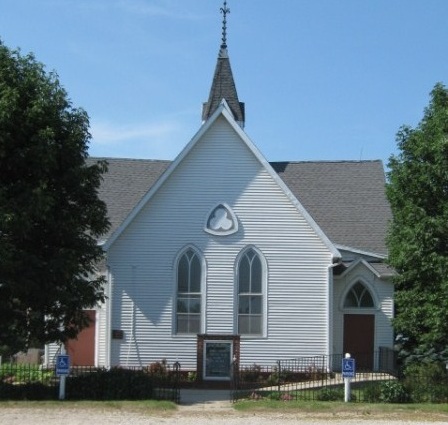FREEDOM FROM RELIGION FOUNDATION, INC. v. GEITHNER, 105 AFTR 2d 2010-2577
This was originally published on PAOO on July 29th, 2010. This is the beginning of a very long story arc that if it did not come to an end definitely hit a pause when FFRF decided not to appeal to the Supreme Court after winning twice in district court and definitively losing in the Seventh Circuit in 2019.
One of the hazards of the CPA designation is that whenever you get involved with a not for profit, they want you to chair the finance committee or be the treasurer or something like that. I used to resist, but eventually, I just resigned myself to it. So of course during the years that I was a member of a small congregation that ran through a lot of ministers, I learned the practical side of the parsonage exclusion. Code Section 107 excludes from the income of “ministers of the gospel” the rental value of their parsonages or, even better, amounts designated as housing allowance that they actually spend on housing. The amount of the exclusion cannot exceed the fair rental value of the residence. It can work out great for a small congregation where the rev is not the main family earner. A question I never resolved was whether you can make their whole compensation housing allowance. Something told me that was pushing it too far. If they are purchasing a house, they get to double-dip in a sense since the amount spent on interest and taxes is still deductible. Military people get the same deal on their housing allowances.
One big difference between the military housing allowance and parsonage is that it is set by statute and is thereby limited. More importantly, except for some really far out militia types, nobody can have much objection to the government saying who is or is not in the military. Having the government say who is or is not a “minister of the gospel” is a little disturbing. but of course, they also have to decide what is or is not a church or an Indian tribe for that matter. I’ve never run into someone who qualified for a parsonage allowance who felt at all embarrassed by it. Of course, my general attitude toward tax rules is that they are what they are. And before long they will likely be something else. Clearly not everybody feels that way particularly the folks at Freedom From Religion Foundation Inc.
FFRF, Inc has sued in district court alleging that Code Section 107 violates the establishment clause in the first amendment. Back in December, Pastor Michael Rodgers petitioned to intervene in the case on behalf of himself and 100 unnamed beneficiaries of the exclusion. He didn’t think the US government and the state of California would do a good enough job defending the constitutionality of the exclusion. The intervention was not allowed
More recently the case has withstood a motion to dismiss. The court noted that:
The Supreme Court has long held that plaintiffs alleging an injury that arises solely out of their federal taxpayer status generally do not have standing in federal court.
In other words, if we were allowed to sue Congress for wasting our money, the courts wouldn’t have a lot of time left for anything else. There is an exception to that rule, however, where a taxpayer is alleging a violation of the establishment clause. So the case survives.
If I was still tied up in worrying about a small congregation with an underpaid minister, I’d definitely be rooting for this thing to just go away. Also, I think the plaintiff has a really disturbing name. Intellectually though the whole thing is really interesting and it should be fun to watch as the case develops.
































































































Trackbacks/Pingbacks